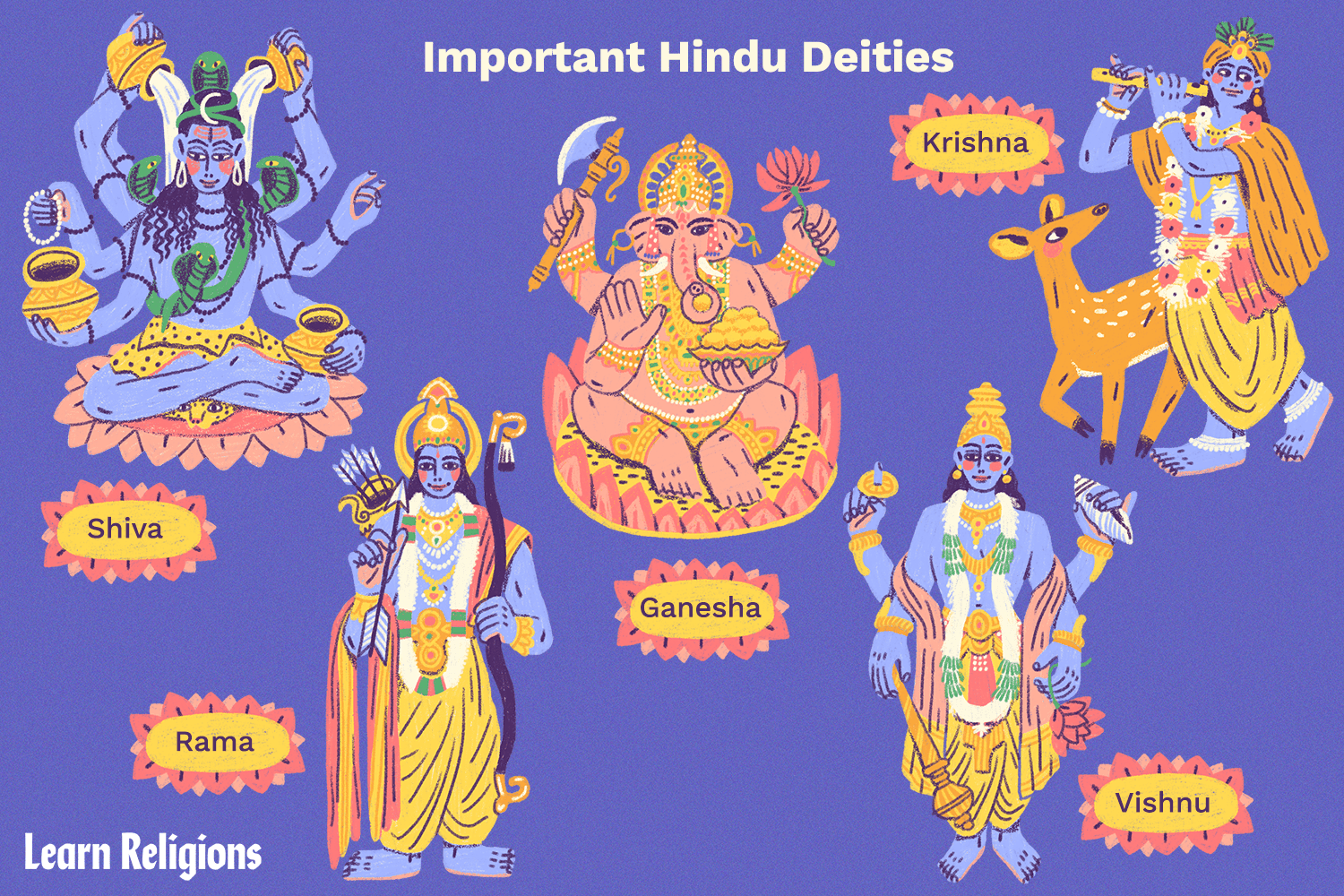Hinduism is a fascinating religion with diverse beliefs and practices. Exploring the ten essential deities showcased here can provide a glimpse into the rich history, traditions, and spirituality of Hinduism. Each deity has its unique significance and represents different aspects of the Hindu philosophy, providing a profound perspective on life, and the universe. Understanding these deities can help one grasp the complexity and diversity of Hinduism and appreciate its cultural significance. Whether one is looking for spiritual guidance, seeking information on different religions, or wants to learn more about Hinduism’s contributions to the world, exploring these deities can be a great start.
The 10 Essential Hindu Deities and Their Significance
Hinduism is one of the world’s oldest religions and has a vast array of deities worshipped by its followers. These deities come in all shapes and sizes and serve various roles in Hindu mythology. Here are ten essential Hindu deities and their significance:
1. Shiva
Shiva is one of the three principal deities of Hinduism and is worshipped as the destroyer. He’s often seen with a trident signifying his role as a destroyer of evil, but he also creates life by eradicating the old. Shiva is known to have a third eye that grants him mediation powers, and he’s also associated with meditation, yoga, and asceticism.
2. Vishnu
Vishnu is the second principal deity of Hinduism and is worshipped as the protector. Vishnu prevails over evil, and his followers believe he will appear in different forms or avatars to protect the world. Some of his most popular incarnations include Lord Rama and Lord Krishna.
3. Brahma
Brahma is the third principal deity in Hinduism and is considered the creator. He’s widely associated with the creation of the universe and is often depicted holding a lotus flower.
4. Ganesha
Ganesha is one of the most popular Hindu deities and is worshipped as the remover of obstacles. He’s often depicted with an elephant head, a large belly, and four arms.
5. Hanuman
Hanuman is the symbol of devotion and loyalty in Hindu mythology. He’s believed to have protected Lord Rama from danger and is worshipped as a symbol of strength.
6. Lakshmi
Lakshmi is the goddess of wealth and prosperity, and her worship is believed to bring material and spiritual wealth to the followers. She’s often depicted holding a lotus flower and is worshipped during Diwali.
7. Saraswati
Saraswati is the goddess of knowledge, arts, and music. She’s often depicted holding a Veena, which is a musical instrument. Students widely worship Saraswati as their patron deity, seeking her blessings for their academia.
8. Durga
Durga is the form of the mother goddess and is worshipped for her protective powers. She’s often depicted riding a tiger and is believed to protect her followers from danger.
9. Kali
Kali is the goddess of preservation, time and creation. She’s associated with the fierce, destructive nature of the universe and is often depicted with a garland of skulls around her neck.
10. Surya
Surya is the god of the sun and is worshipped for his life-giving energy. He’s depicted driving a chariot of seven horses, and his followers worship him to gain his blessings for success and prosperity.
Conclusion
These ten essential Hindu deities play fundamental roles in Hindu mythology and are an integral part of Hindu culture. Followers of the Hindu religion believe that the worship and devotion of these deities bring enlightenment, peace, success, and prosperity in this life and the next.
